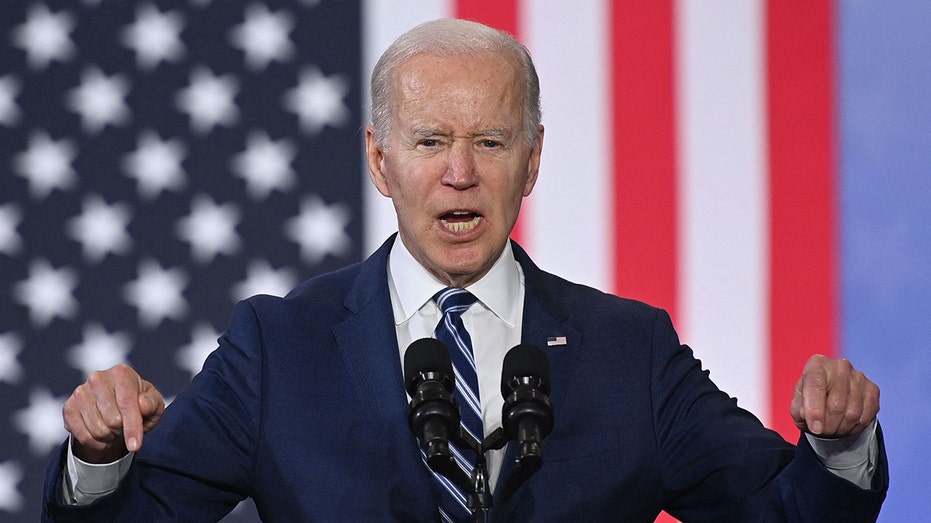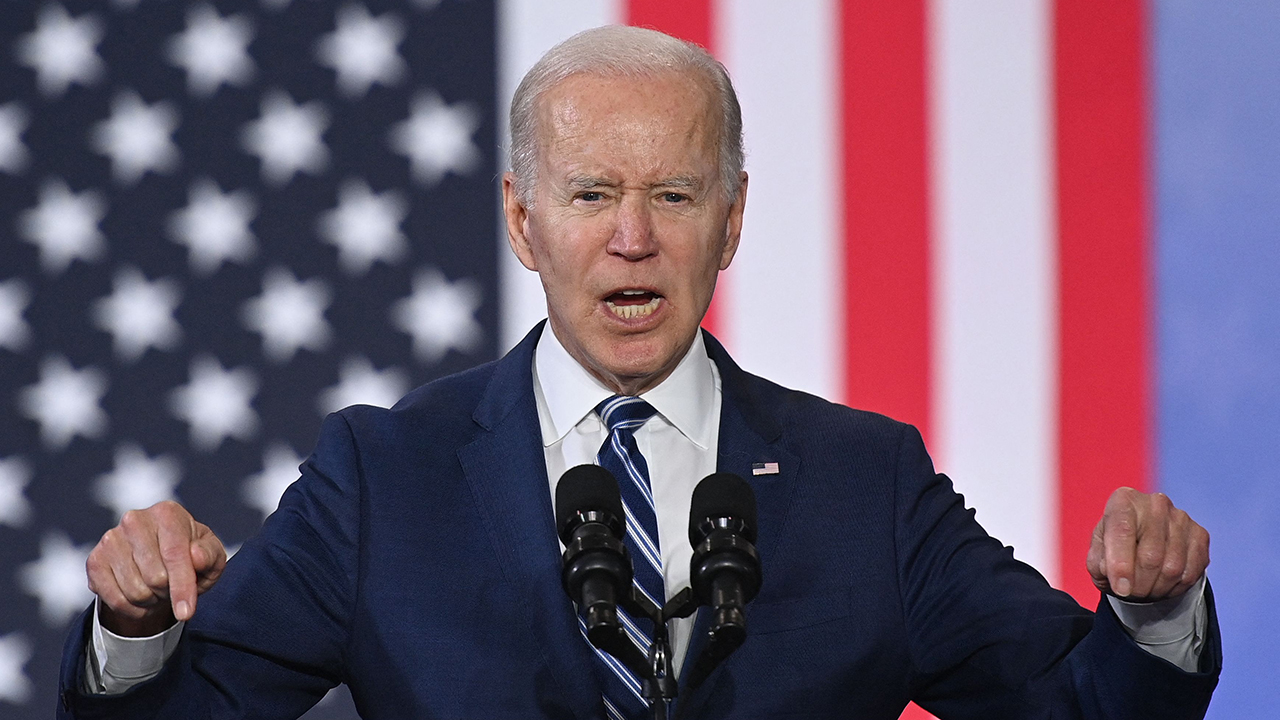One of Biden's favorite economists sees a high chance of recession in next 2 years
Recession odds 'uncomfortably high' over next 24 months: Moody's economist
Federal Reserve fighting inflation with a ‘limited set of tools’: Expert
Potomac Wealth founder and president Mark Avallone weighs in on inflation.
More economists are beginning to forecast a U.S. recession in the next two years as the Federal Reserve moves to rein in the hottest inflation in a decade – including one who is frequently cited by the Biden administration.
Moody's chief economist Mark Zandi – a well-respected economist who has often provided favorable analyses of the White House agenda – said during a webinar this week that he believes the odds of a recession within the next two years is somewhere around 35%.
FED RAISES INTEREST RATES FOR FIRST TIME IN 3 YEARS, PROJECTS 6 MORE HIKES AS INFLATION SURGES
"The risk of the economy entering into a recession at some point over the next 12, 18, 24 months is very high, uncomfortably high. And I’d say rising," Zandi said.

President Biden speaks at the Alumni-Foundation Event Center of North Carolina Agricultural and Technical State University in Greensboro, North Carolina, on April 14, 2022. (MANDEL NGAN/AFP via Getty Images / Getty Images)
That's in line with a recent Goldman Sachs forecast that suggested the policy tightening trajectory the U.S. central bank is about to embark on raises the odds of a recession to 15% in the next 12 months and 35% within the next 24 months. The Goldman analysts noted that 11 of the 14 tightening cycles since World War II have been followed by a recession within two years, though only eight of them can be partially attributed to Fed policy.
The analyses come as the Fed takes a more hawkish approach to fighting inflation, which is at the highest level since December 1981. Policymakers raised rates by a quarter-percentage point in March, and have since signaled that sharper, half-point increases are likely in the coming months, beginning in May.
"It is appropriate to be moving a little more quickly," Fed Chairman Jerome Powell said Thursday during a panel discussion at the International Monetary Fund and World Bank spring meetings. "I also think there’s something in the idea of front end-loading whatever accommodation one thinks is appropriate. So that points in the direction of 50-basis points being on the table."
Traders are now pricing in a 100% chance of at least a half-point rate jump when policymakers meet on May 3-4. It would mark the first time since 2000 that the U.S. central bank raised the federal funds rate by 50 basis points.

In this Jan. 29, 2020 file photo, Federal Reserve Chair Jerome Powell pauses during a news conference in Washington. (AP Photo/Manuel Balce Ceneta, File / AP Newsroom)
Some economists believe the Fed waited too long to confront the burst in inflation, while others have expressed concerns that moving too quickly to stabilize prices risks triggering an economic recession. Hiking interest rates tends to create higher rates on consumer and business loans, which slows the economy by forcing employers to cut back on spending.
Powell has pushed back against concern that further tightening by the central bank will trigger a recession and has maintained optimism that the Fed can strike a delicate balance between taming inflation without crushing the economy.
GET FOX BUSINESS ON THE GO BY CLICKING HERE
Still, he acknowledged the difficulty of the task ahead and said it is "absolutely essential" for central bankers to restore price stability.
"Our goal is to use our tools to get demand and supply back in sync, so inflation moves back into place, without a slowdown that amounts to a recession," Powell said. "I don't think you'll hear anyone at the Fed say that's straightforward and easy. It's going to be challenging."





















